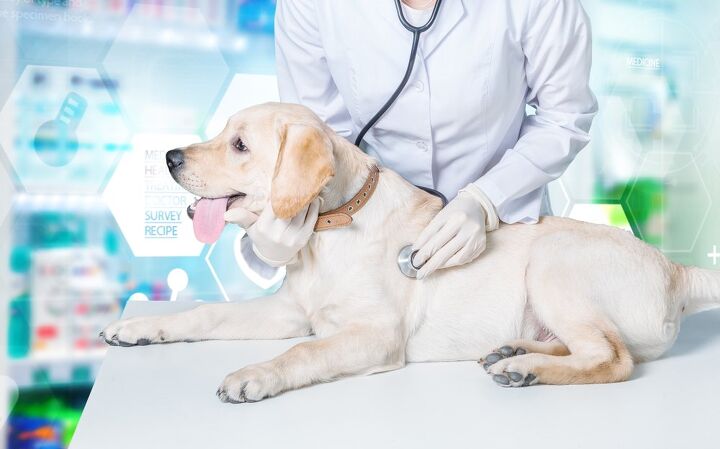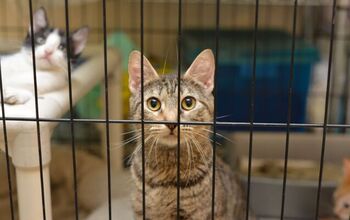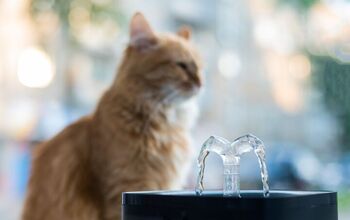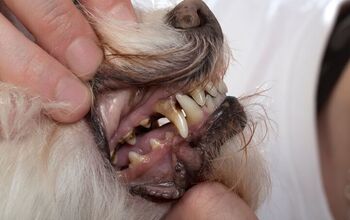Tips to Handle a Poison Emergency

What should you do in the event that your pet has ingested something toxic? We’ve compiled a short list of steps so that you can know what to do in advance, as a poison emergency needs to be dealt with promptly.
Keep Calm and Call Your Veterinarian
If your pet has ingested something toxic, getting help right away is imperative. You should immediately call your vet to let him or her know what happened and when it happened, and to receive guidance on what you should do next, whether that involves rushing your pet to the veterinary hospital or inducing vomiting at home according to the vet’s instructions.
Related: What to Do if Your Dog is Poisoned
Note: in addition to calling your vet, you can also contact the Pet Poison Helpline, which is available 24/7 (their number is 855-764-7661). Yet another option is the ASPCA Animal Poison Control Center, which is also available 24 hours a day every day of the year (their number is 888-426-4435).
It’s important to receive expert guidance in an emergency situation like this, so don’t hesitate to contact the professionals. The sooner you get your pet help, the better.
If you aren’t sure if your pet ingested something toxic, or you aren’t sure of when it happened, call the experts anyway, as they can guide you in the right direction towards ensuring your companion will be okay.
Pro tip: Keep your vet’s phone number, poison helpline numbers, and emergency veterinary hospital numbers stored in your phone. That way, in an emergency, you can call right away.
Keep Your Pet in a Safe Place and Evaluate Symptoms
If your pet is still near the toxin that she ingested, or that you suspect she ingested, take her to a safe area, and make sure your pet doesn’t consume any more of it.
Related: Basic First Aid Tips for Dogs
Check your pet’s symptoms right away. Is she breathing? Is she acting normally? Or is she showing any signs that something is seriously wrong?
Even if your pet isn’t showing any symptoms, contact your vet, as some poisons don’t cause symptoms right away.
Don’t induce vomiting or try any home remedies unless your vet tells you to do so.
We know that it’s hard, but remaining as calm as possible is key, as you’ll be able to think more clearly throughout this scary situation. You’ll be able to evaluate your pet’s condition, clearly articulate what happened, and follow the vet’s instructions more easily if you aren’t panicking.
Get a Sample of the Toxin
If you have access to the poison that your pet ingested, collect some of it so that you can show your veterinarian. You can even save the packaging that the toxin was found in so that your vet will have more information about what your pet consumed.
Can’t get an actual sample of the poison? It’s helpful if you can at least write down the name of the product that was consumed, the strength (such as the milligrams of a medication), and the active ingredients in the product. If the product has an EPA registration number, write that down too.
Is your pet vomiting, passing stool, or experiencing diarrhea? It might be gross, but consider getting samples of those, too, as your vet might be able to use them to determine the cause of the poisoning and the appropriate treatment.
Basically, give your vet as much information as you can over the phone, and bring that information with you to your vet’s office as well. Doing so will help the veterinary team determine what treatment is best, and it can help them save much-needed time.
It’s Important to Act Fast
Bottom line: during a poison emergency involving your dog or cat, you must act fast. The sooner your pet can get help, the greater the odds of a recovery.

Lisa Selvaggio is a freelance writer and editor, and our resident cats-pert, with certifications in pet nutrition and pet first aid. She enjoys producing content that helps people understand animals better so they can give their pets a safe and happy home.
More by Lisa Selvaggio























